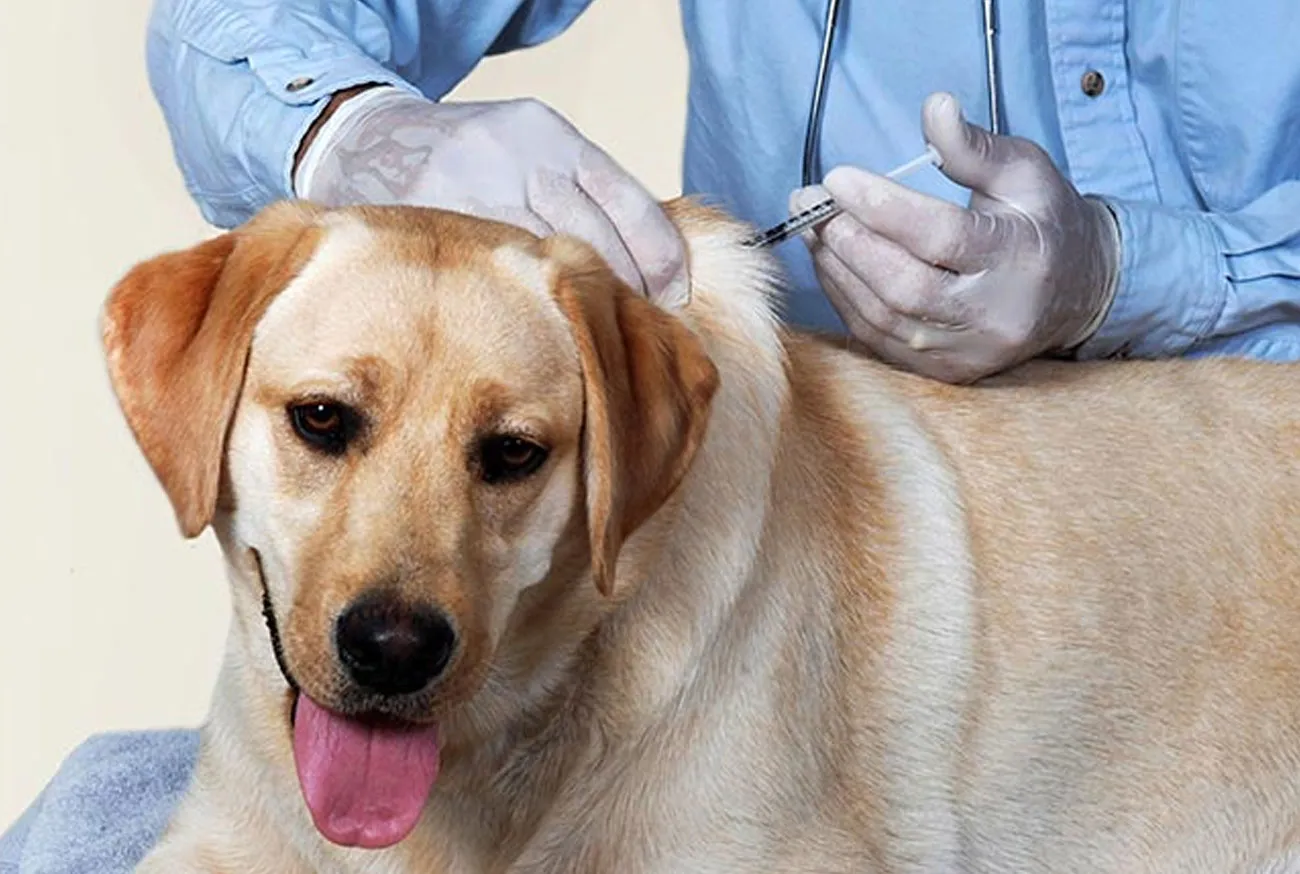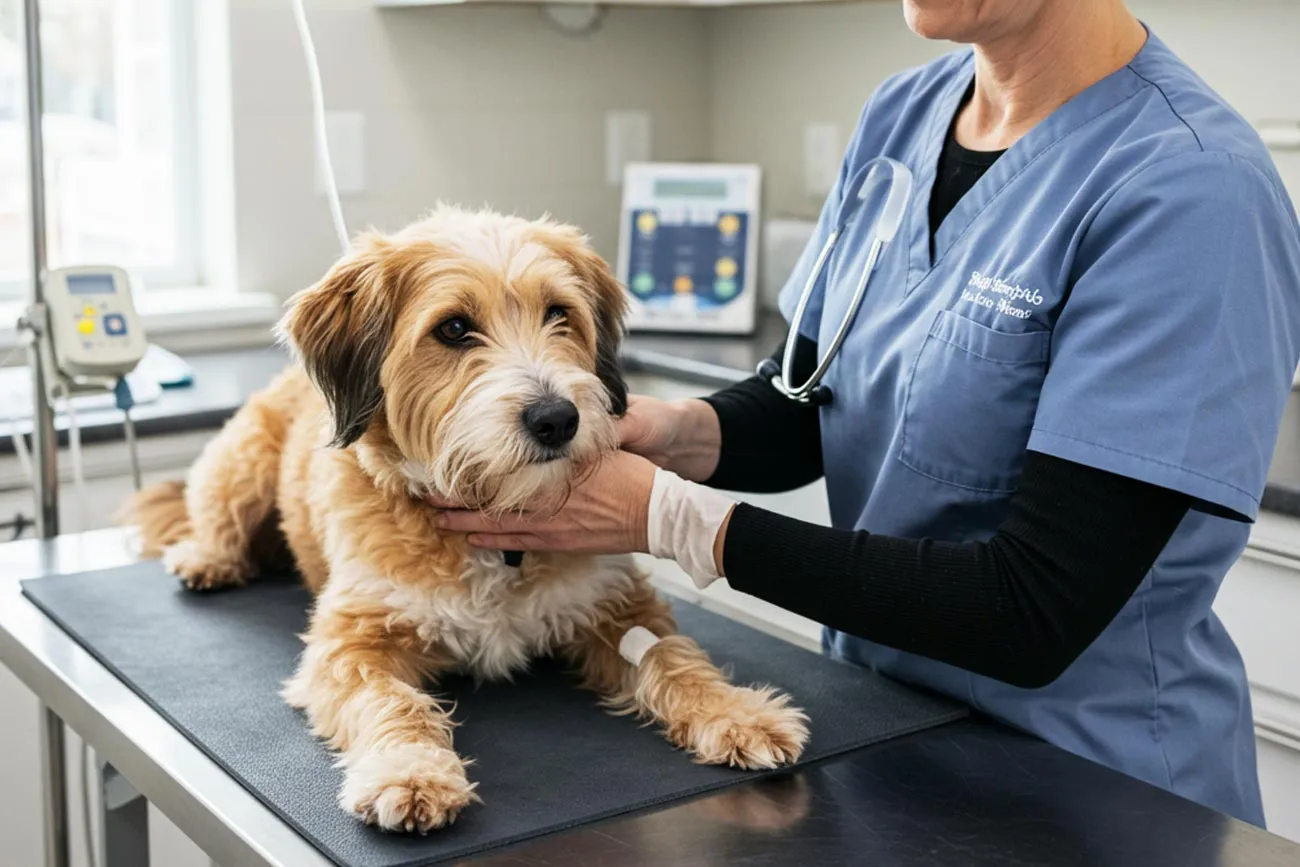But have you ever wondered how many vaccines a dog needs to take? Or what diseases these vaccines prevent? If so, you’re in the right place! In this post, we’ll explore everything you need to know about the dog vaccine, from the vaccination schedule to the most common questions. Let’s dive in!
What is a dog vaccine and how does it work?
Vaccines are divided into two main types:
- Core vaccines: These are considered mandatory for all dogs, regardless of lifestyle or geographical location.
- Non-core vaccines: Recommended only for dogs living in high-risk areas or with a lifestyle that exposes them to certain diseases.
Vaccination schedule: how many vaccines does a dog need?
Now that you know what a dog vaccine is, let’s get to the main question: how many vaccines does your dog need? The answer depends on the dog's age, lifestyle, and the region where it lives. However, there is a basic vaccination schedule that every pet owner should follow.

Puppy vaccines
Puppies are more vulnerable to diseases because their immune systems are still developing. That’s why the dog vaccine should start early. Check out the basic schedule:
- 6 to 8 weeks: First dose of the multiple vaccine (V8 or V10), which protects against diseases like distemper, parvovirus, and infectious hepatitis.
- 10 to 12 weeks: Second dose of the multiple vaccine and the first dose of the canine flu and leptospirosis vaccines.
- 14 to 16 weeks: Third dose of the multiple vaccine, second dose of the canine flu and leptospirosis vaccines, and the first dose of the rabies vaccine.
Adult dog vaccines
After the first year of life, your dog will need booster doses to keep its immunization up to date. The schedule includes:
- Annually: Booster doses of the multiple vaccine (V8 or V10), canine flu vaccine, leptospirosis vaccine, and rabies vaccine.
- Every 3 years: Depending on your veterinarian’s recommendation, some vaccines may be administered at longer intervals.
Optional vaccines
In addition to the essential vaccines, there are others that may be recommended depending on your dog’s risk of exposure. These include:
- Giardia vaccine: Recommended for dogs that visit parks or areas with stagnant water.
- Leishmaniasis vaccine: Recommended for dogs living in endemic areas.
- Kennel cough vaccine: Important for dogs that go to daycare or pet hotels.
Why is it important to follow the vaccination schedule?
Following the vaccination schedule is crucial to ensure your dog is always protected. Skipping a dose or delaying vaccination can leave your pet vulnerable to serious diseases. Additionally, some diseases, like distemper and parvovirus, are highly contagious and can be fatal.
Another important point is that herd immunity is only effective when most dogs are vaccinated. This means that by vaccinating your pet, you’re also contributing to the health of other animals.
What diseases does the dog vaccine prevent?
The dog vaccine is the best way to prevent a variety of diseases. Here are the main ones:
- Distemper: A highly contagious viral disease that affects the respiratory, gastrointestinal, and nervous systems.
- Parvovirus: Caused by a virus that attacks the gastrointestinal system, leading to severe vomiting and diarrhea.
- Infectious hepatitis: Affects the liver and can be fatal if not treated in time.
- Leptospirosis: Transmitted through rat urine, it can affect both dogs and humans.
- Rabies: A fatal disease that can also be transmitted to humans.
- Canine flu: Causes symptoms similar to human flu, such as coughing and fever.
Care before and after vaccination
The dog vaccine is safe, but certain precautions are necessary to ensure everything goes smoothly:
- Before vaccination: Make sure the animal is healthy. If it’s sick or has a fever, the veterinarian may postpone the vaccination.
- After vaccination: Observe the dog for a few hours. Mild reactions, such as drowsiness or swelling at the injection site, are normal. However, if your pet experiences vomiting, diarrhea, or difficulty breathing, contact a veterinarian immediately.
Myths and truths about dog vaccines
There are many myths about dog vaccination. Let’s clarify a few:
- Myth: Dogs that live in apartments don’t need to be vaccinated.
Truth: Even in enclosed environments, dogs can be exposed to diseases through objects or contact with other animals. - Myth: Vaccines cause autism in dogs.
Truth: There is no scientific evidence to support this claim. - Myth: Vaccines are expensive and unnecessary.
Truth: The cost of vaccines is much lower than the treatment for severe diseases.
Protect your best friend!
Now that you know how many vaccines a dog needs, you’re better prepared to take care of your pet’s health. Remember that the dog vaccine is not just a way to prevent diseases but also a demonstration of love and responsibility.
If you enjoyed this content and think it can help other pet owners, share it on your social media! Together, we can ensure more dogs have a long, healthy, and happy life.

















Add comment